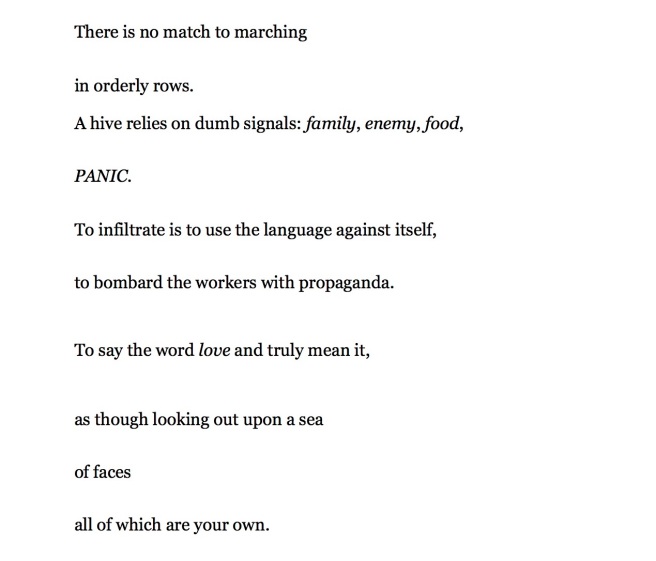I am the bad one in this story, I know.
But just think: I’m alone in the forest,
maybe I am gimpy with stroke,
or have Alzheimers, a heart condition.
I’m the mother of the step-mother
who sent those kids into the woods to starve.
And what about me, abandoned
in this lean-to shack the color of burnt gingerbread?
I take those rug rats in.
I don’t shove them in my oven.
I feed them candy and milk.
Spies, they are, for my heartless
daughter. She wants me dead.
Medicare ain’t paying for no dementia
ward and there are no beds at Eastern State
Hospital. Yes, I’m diagnosed with a psychosis
NOS, not otherwise specified, but I’m not
going to eat those kids. Cannibalism?
No way, but really, didn’t being a mother
eat me up? The constant worry, earnest
as hunger. The only reward for suckling
them, sore nipples, veiny breasts.
Nobody cares about the old woman
with shriveled ovaries, so they call us witch.
I’ve only taken your cutie-pies hostage,
not that their stepmom, cares,
not that anyone gives a damn.
Child Protective Services
will eventually be called
but it will be too late.
I will have relieved the parents of their little
burdens, then spread their ashes over the moss.
Gather sticks for a large pyre,
Hansel and Gretel, your Grandmama
will soon join you. The crows
can witness how brightly
cast-off things burn.
Gayle Kaune has been published widely in literary magazines including Poet and Critic, Crab Creek Review, Seattle Review, Milkweed Editions, South Florida Poetry Review, and Centennial Review. She has won several Washington Poets Awards, a Ben Hur Lampmann award, and has been nominated for a Pushcart Prize. Her book, Still Life in the Physical World, was published by Blue Begonia Press; her latest, All the Birds Awake, is available from Tebot Bach. She also has two chapbooks: N’Sid-Sen-Star and Concentric Circles, which won the Flume Press Award. Her latest manuscript, Noise From Stars, is looking for a home.




































